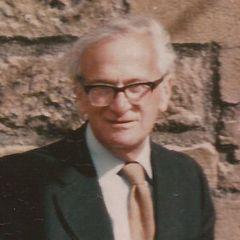John Stuart Mill Quotes about Science

John Stuart Mill (1865). “Principles of Political Economy: With Some of Their Applications to Social Philosophy”, p.454
John Stuart Mill (1873). “Coleridge. M. de Tocqueville on democracy in America. Bailey on Berkeley's theory of vision. Michelets' history of France. The claims of labor. Guizot's essays and lectures on history. Early Grecian history and legend”, p.11
John Stuart Mill (1865). “An Examination of Sir William Hamilton's Philosophy and of the Principal Philosophical Questions Discussed in His Writings”, p.531
John Stuart Mill (1858). “A System of Logic, Ratiocinative and Inductive: Being a Connected View of the Principles of Evidence and the Methods of Scientific Investigation”, p.203
John Stuart Mill (1858). “A System of Logic, Ratiocinative and Inductive: Being a Connected View of the Principles of Evidence and the Methods of Scientific Investigation”, p.224
"The Collected Works of John Stuart Mill".
John Stuart Mill (1856). “A System of Logic, Ratiocinative and Inductive: Being a Connected View of the Principles of Evidence and the Methods of Scientific Investigation”, p.293
John Stuart Mill (1858). “A System of Logic, Ratiocinative and Inductive: Being a Connected View of the Principles of Evidence and the Methods of Scientific Investigation”, p.200
John Stuart Mill (2016). “A System Of Logic, Ratiocinative And Inductive: Mill's Works”, p.852, VM eBooks
John Stuart Mill (2017). “The Collected Works of John Stuart Mill: Utilitarianism, The Subjection of Women, On Liberty, Principles of Political Economy, A System of Logic, Ratiocinative and Inductive, Memoirs…”, p.1092, e-artnow
John Stuart Mill (1858). “A System of Logic, Ratiocinative and Inductive: Being a Connected View of the Principles of Evidence and the Methods of Scientific Investigation”, p.117
John Stuart Mill (1856). “A System of Logic, Ratiocinative and Inductive, Being a Connected View of the Principles, and the Methods of Scientific Investigation”, p.16
John Stuart Mill (1846). “A System of Logic, Ratiocinative and Inductive: Being a Connected View of the Principles of Evidence and the Methods of Scientific Investigation”, p.337
John Stuart Mill “Principles of Political Economy: Abridged with Critical, Bibliographical and Explanatory Notes and a Sketch of the History of Political Economy”, Library of Alexandria






